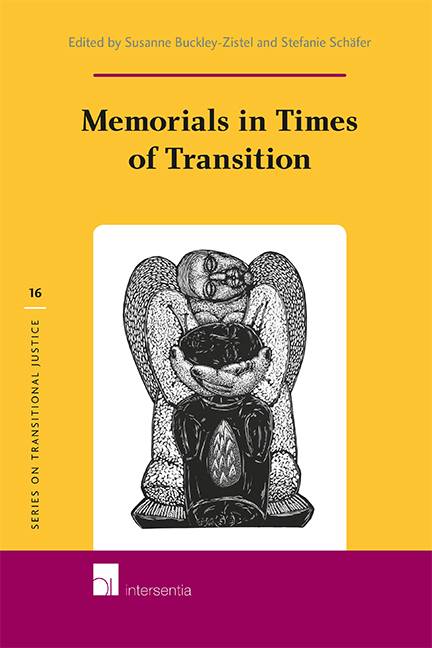Chapter 3 - Alétheia and the Making of the World: Inner and Outer Dimensions of Memorials in Rwanda
Published online by Cambridge University Press: 16 December 2020
Summary
Evening of April Evening of Mourning April turned dark, the month that will never be forgotten (Refrain)
After the experience of mass violence communities and individuals alike have to come to terms with these violent histories which reverberate into the present and future. On the societal and political level, mechanisms commonly referred to as transitional justice are being deployed to deal with the legacy of repressive regimes and violent conflicts. Memorialisation – understood as the practice of remembrance such as through commemorations, the writing of history text books and the establishment of memorials – has become part of this wider transitional justice tool-box, although it has garnered much less attention than legal and truth-telling mechanisms. Memorials as one form of memorialisation can be understood as symbolic reparation for the victims and survivors of mass violence since they acknowledge their suffering and grief and pay respect to the dead. Therefore, after mass violence memorials can be understood as physical loci of recognition and the imperative not to forget the atrocities of the past.
Memorials to mass violence restore the violent past in the present moment and try to rewrite it by making the event intelligible to the onlooker. For the society which suffered the violence it is a steady reminder of its past and thus also forms a ‘point of connection’. In this sense, memorials move remembrance as a cultural practice beyond the boundaries of the individual, or as William Booth calls it, beyond the personal “thick memory” of one's mind. As a ‘point of connection’ memorials serve as a focal point for remembering the past, for the fight against the oblivion of injustice and inhumanity. At the same time, memorials constitute a medium to conserve the past (Speichermedium) and to ensure that personal memories are bonded to the cultural memory practices of the community. Thus, according to Maurice Halbwachs, memories must be tied to a physical presence in the world in order to recall the past and to contextualize it in the present. Memorials therefore serve to preserve that which might otherwise be at risk of being forgotten and eradicated from a community's memory.
- Type
- Chapter
- Information
- Memorials in Times of Transition , pp. 69 - 94Publisher: IntersentiaPrint publication year: 2014
- 9
- Cited by



